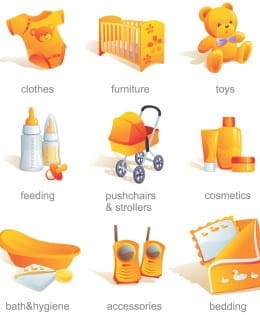No how-to guide for raising children exists, making parenting a big responsibility for parents around the globe. Despite a lack of an instruction manual on how to raise a child, most parents do what they feel is best for their kids and make quick decisions at times without knowing what is really the best move.
It’s important for parents to have healthy, happy relationships with one another not only for their children’s sake but also to make sure everyone is comfortable. Research shows that children gravitate towards families that are happy and content with each other. For example, they will take confidence in knowing that when they leave the house, what they’ve learned at home will likely hold true while they are out — this can mean everything from practical safety skills to emotional safety like learning ways to interact with others by showing respect or how to identify unsafe situations. It’s important that parents have taught safe practices in every aspect of life, even if it is not always directly related to parenting!
How To Discuss Safety With Your Child
When you have a child it isn’t easy to tell them they can’t do something. Many times we want to give our children the world and let them do whatever they like however this is not always the best way to bring up responsible adults in the future. An important part of any child rearing experience is communication so that your little angels know just what they are capable of and how far to go when it comes to their safety.
Without talking to your child about safety issues on a regular basis, it’s possible that your child could become unaware of the appropriate way to stay safe if faced with a situation in which he or she needs to be cautious. It’s always best to talk about safety and other important matters in a manner that is easy for your child to comprehend at his age, but these talks are still important despite their difficulty.
Your toddler is a growing person. They recognize their parent’s name and are starting to be able to communicate for themselves. You must ensure that your toddler knows the difference between them knowing their voice and hearing you when in a busy public place. It is important that when you’re out with your child, to teach them to stay at your side as life goes on all around you – whether you’re at home or out on the street with cool stores, restaurants and people everywhere!
There are several safety leashes and other equipment that you can purchase to ensure that your child doesn’t wander off too far into the water. Talk to your toddler about their different body parts and how their private parts are special to them. When talking to your toddler about safety, make sure to cover the following points, which are important:
- Toddlers learn best when you use real-life situations to teach them. Hypothetical situations aren’t always easy to comprehend for a toddler. Keep this in mind.
- Teach your child how to ask for help if it is needed. Teach children to trust their caregivers, but also to realize when they have an ‘uh-oh’ feeling that signals that something is right.
- Use language that your toddler can comprehend and understand.
Preschool
A child of preschool age should be able to tell you exactly where they live and who they live there with and what their parents occupations are if they happen to work. Your child should be able to tell you the complete telephone number of the house, where he or she lives, as well as their parents’ home numbers. It’s also important that your preschool aged child be able to distinguish between a stranger or someone that they know very well because no matter how old we grow up it is essential to understand safety measures at all times!
Prepare your child with a password that only they know in case they are approached by a stranger. A preschooler must know that he or she should never get into a car with people they don’t know. Teach them how to contact authorities and ask for help if their guardians aren’t nearby when the need arises.
Touching is an important part of learning how social interactions work and play a big role in how people get along. As a little kid ages, he or she will continue to learn about appropriate ways to interact with other children for many years to come. But like all lessons it sometimes also takes a bit of reminding from parents and carers. This article seeks to help parents by providing some facts and tips on the issue at hand.
Elementary Age Children
Creating a buddy system with elementary aged children is the best way to ensure the child’s safety. It’s always more fun to spend time with a friend regardless of what one chooses to do and it is better for them as well as for their parents and themselves. A list of trusted people that your child can call on in case of an emergency should also be made. Make sure to include at least 5 names to this list. Help explain to your child that it’s important not to keep secrets from their parents because if an adult asks for them to keep something secret, they’re going to have to tell an adult immediately!
The conversation surrounding sex is one of the most confusing and uncomfortable topics that parents tend to shy away from when they’re talking to their children. There are many resources available in terms of books, magazines, and movies that can help guide you along the way as you begin this discussion with them. But remember to be honest with your child and let them know that you two need to go over their bodies together so they fully understand what appropriate touching is versus what isn’t appropriate. This will be a great lesson for your child because it will teach them the importance of consent right at a young age. Having this discussion even when your child is very young can bring some peace of mind because now they’ll have both sides (not just yours) in which to compare information against an get an overall understanding about sexuality as far as its seriousness goes.
It’s important to teach your kids about sex in an appropriate manner. It can be difficult sometimes because of the changing technology that kids use today as well as the fact that they tend to learn a lot from other sources. Essentially, there are many different ways your child can be exposed to sexual information so what’s most important is helping them feel comfortable and safe without too much pressure when it comes down to the topic of sex and sexuality.
Middle School Children
It is important for you to talk to your child about the online world and what dangers might exist. If a predator poses as anyone, he can pose as a friend of yours or another family member who has your same name. Also remember to teach your kids that other dangers exist online like bullies who enjoy upsetting others.
Let your child know how friends are critical at this point of their lives. It can be easy for kids to fall into arguments with their peers at this age, so stress the importance of respect for others, as well as explaining that we all just want what’s best for our children and that you’ll find a way to support them in staying true to themselves despite peer pressure. Also, explain how feelings are bound to swing back and forth in relationships, but that it’s getting through the rough patches together which makes the journey exciting.











